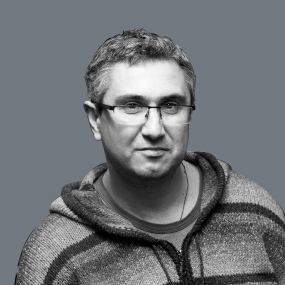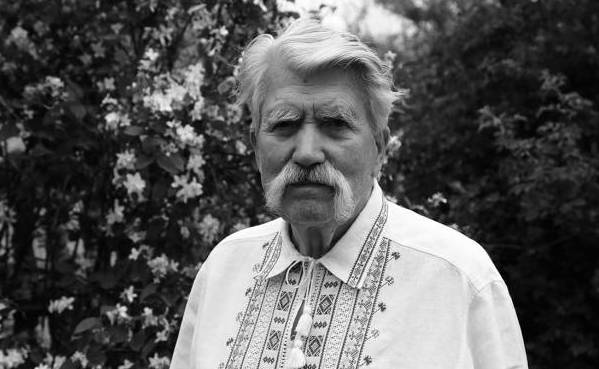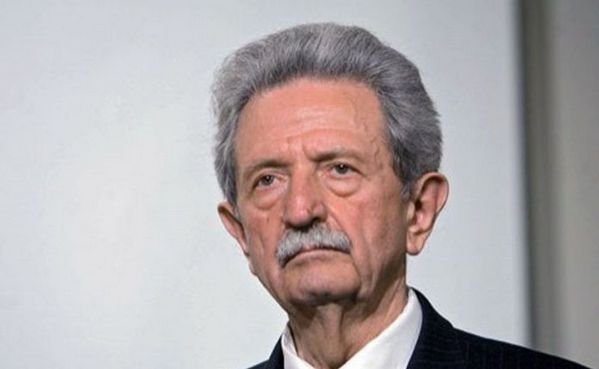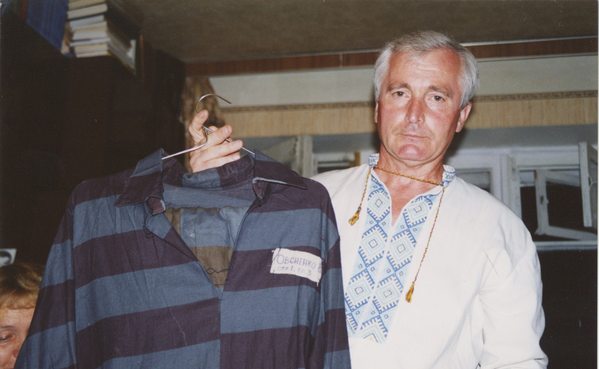Leonid Plyushch
Plyushch Leonid Ivanovych (b. 26 April 1939, Naryn, Kirghiz SSR, USSR — 4 June 2015, Bessèges, France).
As a child, Leonid Plyushch was diagnosed with osteoarticular tuberculosis. Advised by doctors, the family moved to Odessa. The child had been bed-bound for several years.
After finishing school, Plyushch spent three years studying at the Faculty of Physics and Mathematics of the Odessa University. Then he teached in a village school for a year, and graduated from the Faculty of Mechanics and Mathematics of the Kyiv State University. Having received his diploma, Plyushch found a job as an applied mathematician at the Institute of Cybernetics of the Academy of Sciences of the Ukrainian SSR.
In the mid-1960s, Leonid Plyushch became close with dissidents. He kept in touch with Kyiv and Moscow dissidents, Ukrainian, Jewish, and Crimean Tatar national movements. He was known not only as an author of materials for the underground press, but also as a translator of Ukrainian dissidents' works into Russian. He expressed his disagreement with the Soviet government policy openly, writing letters to various authorities and newspapers. He collected information about human rights violations in Ukraine and passed it on to the dissident publications "Khronika Tekushchikh Sobytiy" (lit. – "Chronicle of Current Events") and "Ukrainsky Visnyk" (lit. – "Ukrainian Herald").
Plyushch was one of those dissentients who believed that socialism could be reformed, brought closer to the ideals that initially spawned this doctrine. He came from a Russian-speaking background, but was moved by the problem of defending Ukrainian language and culture.
In 1968, because of his article in favor of political prisoners, which was sent to "Komsomolska Pravda" (lit. – "Komsomol Truth") newspaper, Plyushch lost his prestigious job at the Institute of Cybernetics.
In 1969, Leonid Plyushch joined the Initiative Group for the Defense of Human Rights in the USSR – the first independent civil association in the country that acted publicly.
Within the "Block" operation, on 15 January 1972, Plyushch was arrested for anti-Soviet campaigning and propaganda. The dissident became one of the victims of the Soviet punitive psychiatry – he was declared mentally incompetent and sent to compulsory psychiatric treatment with a diagnosis of "flaccid schizophrenia".
A campaign for Leonid Plyushch's release was set to motion in the West, – with all the open letters, protests, and press-conferences. The prisoner was consistently supported by his mathematician colleagues. The dissident's wife, Tetiana Zhytnykova, although still living in the USSR, became a key figure of the movement for her husband's release.
Finally, the Soviet government ceded ground and, in early 1976, Leonid Plyushch was set free. He and his family moved to France. Having him examined, the local doctors disproved all conclusions of the Soviet expertise about the "flaccid schizophrenia".
During his emigration, Plyushch returned to human rights activism, and became the Ukrainian Helsinki Group representative abroad among other things.
Using his fresh memories about the dissident movement and compulsory treatment, Plyushch wrote and published a book titled "History's Carnival" in several languages. He continued his literary studies, which he started in the USSR, abroad as well.
Despite Perestroika and the collapse of the Soviet Union, Leonid Plyushch stayed in emigration, but had been visiting Ukraine since 1990. He passed away in 2015 in France, where he was buried.

Повне інтерв'ю читайте у книзі "Дисиденти".







